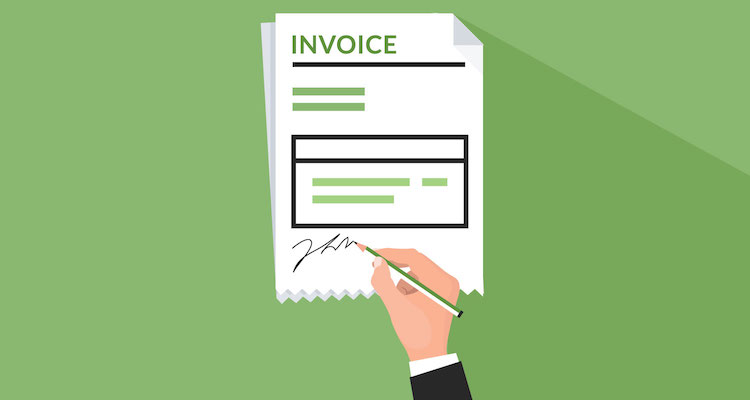Running a small business is truly a balancing act. Business owners need to focus on keeping their clients happy, marketing efforts, sales, and a million other tasks all while providing quality products or services. On top of all that, they need to have a grasp on their invoicing to make sure cash flow remains steady.
Any error on your invoice, big or small, can cause serious delays in payments and hurt your cash flow. Some errors are keeping you from getting paid on time — if at all.
Here are Five Invoicing Mistakes:
You Haven’t Switched to a Digital Provider Yet
Change is something we all must accept. Out with the old in with the new is a phrase we hear all too often in the digital age. If you haven’t already done so, it’s time to switch to an online invoicing solution for your business. These platforms allow you to seamlessly create and send invoices, save clients, set recurring schedules, and much more.
Many of the top payment tools and online payment solutions offer a digital invoicing product. When shopping around at these different providers make sure you inquire about fees and processing rates.
You Didn’t Include a Logo or Branding on Your Invoice
Regardless the size of your business, it’s very important to push your brand wherever possible. This is especially important on invoices.
Whether you’re sending invoices by mail or online, every single invoice should be consistent with your branding and should include your company logo.
Business owners spend hours making sure their website and other relevant marketing materials properly reflect their brand but often forget their invoices. Don’t make the same mistake and make sure you create beautifully branded invoices for your clients.
You Didn’t Agree on or Set a Due Date
The standard invoice template will typically say “invoice payment due in 30 days”. This seems clear enough right? As pessimistic as it sounds, you should always assume the worst when billing clients.
Payment schedules, due dates, and other terms should be crystal clear on any agreement and or invoice.
Take a moment to consider how many invoices your client may receive in a given month. It’s your job to make sure the invoice you send them will be paid on or well before the date you expect it.
I recommend giving clients no more than two weeks to pay an invoice, that way you’ll have a steadier cash flow when billing clients. Set a clear due date at the top of the invoice so you can mitigate the chances of getting paid late.
You Surprised Your Client
Some people love surprises and others don’t. One thing we know for sure is that nobody likes a surprise by way of a charge of any size (but especially a big one) nor do people handle an invoice they were not expecting.
When working with clients, communication is the key to making sure the relationship lasts. That being said, it’s never okay to send your client an invoice without notifying them first. This often happens when a contractor spends additional hours on a project or works longer than what was estimated.
This usually results in one of the following: Either the contractor will bill over what was expected or they’ll send an additional invoice reflecting the extra work. If the client was notified of this before the invoice was sent, that’s fine however more often than not these invoices are sent without warning. This will cause confusion and likely delay the payment.
You Never Followed Up
Chasing down payments is nobodies favorite task, but it’s imperative to maintain a steady cash flow. Regardless how clear you are on your invoices, there will always be the one client who needs to be followed up with.
If you follow up consistently and on time, your clients will begin to respect your process and will likely reciprocate the gesture.
Running a business is difficult enough as is. When it comes to billing your clients, you want to get that check cashed as quickly as possible. Take note of these 5 common invoicing mistakes and make sure to avoid them at all costs — then they won’t end up costing you.













